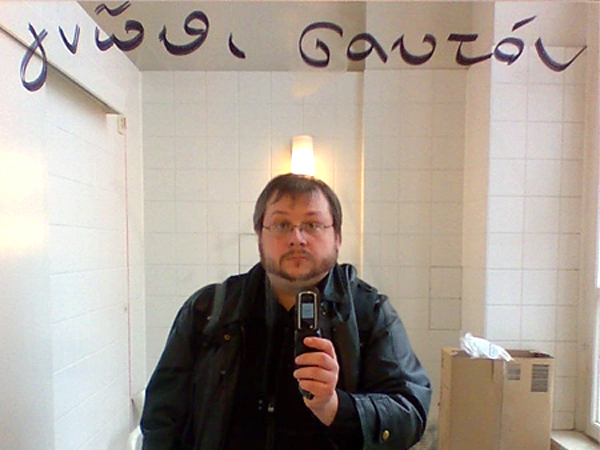
I.
During the recent weeks, we have heard demands for uttering shibboleths from athletes or artists at two crucial occasions: During the Beijing Winter Olympics – held in a totalitarian state – and during the genocidal war waged by Russia against innocent Ukraine. What do athletes, what do artists, what do performers think about gruesome things happening around them, especially if they are associated with it?
Should an athlete have an opinion on where they are competing?
Should a prominent conductor or singer have an opinion on a war of aggression their country is waging, especially if they are close to the leader?
Should any artist, aiming for an audience, be expected to partake in the political sphere?
Or, condensed, are sports and arts political?
A lot has been said and written and counter-said and counter-written in the last weeks about these, ranging from one end of the spectrum (completely private) to the other (completely political), leading to everything from castigating to ostracizing or (how it is called today) cancellation.
What do we have to make of this? Let us simplify art and athletics, and artists and performers as both being about a specific technê, an art, and ask again: Do artists, and also, does art have a political responsibility?
II.
This reminds me, tangentially, erratically, of something completely different, maybe. When asked about the seemliness of the practice of taxing the distribution of urine in Rome, Emperor Vespasian reportedly responded that “pecunia non olet” – money does not stink. No matter how the money was made, it did not carry with it the stink of the original product. Money is neutral, is mobile. Vespasian basically knew already about the exchange value of capital, which Marx would describe only many, many centuries later. Capital is neutral, it is mobile. Social capital, however, directly hinges on the social status and activity of a person. Yet once you have it, it seems that its origin is less important again.
Art and social capital are intimately intertwined. Art never happens without a social context – even your diary can become known, and you yourself are always situated within society, as Aristotle had realized: We are social beings, zôoi politikoi. Wherever there is society, there is politics. Nothing, nothing, nothing is really unpolitical: there may be gradations of this, though. Something written down in an obscure diary never intended for publication may not deliberately be political, at least not as intended. A kid’s quick drawing for the refrigerator wall would probably qualify under crafts rather than arts. So shall we establish that crafts are unpolitical, while arts are political?
Maybe, but let’s just go for it.
My own art has always been political in part. Not every poem or photo series or composition would be explicitly political, but some are – and even the choice not to be overtly political is already a political choice: not speaking about something is also speaking about something. We cannot not communicate, as the great Paul Watzlawick has stated.
Art is also the art of deep introspection. From this, we know that as an artist, it is your duty to know yourself. You have to figuratively visit the Oracle of Delphi, answering her command to “gnôthi seauton”, to “know thyself” before letting the muse capture your imagination.
Thus, briefly and clearly, art is political, and requires conscious introspection. The social capital of artists requires, from time to time, a legitimate positioning towards controversial political issues.
III.
Valéry Gergiev has brought out a masterful selection of Shostakovich’s symphonies that he calls the “War Symphonies.” He contributed also to the documentary film, and it is clear that Shostakovich did not like Stalin, but occasionally had to dance a political dance around him. If Staling found a piece of music too controversial, Shostakovich would then hack out an (allegedly) party-pleasing piece which helped him avoid prison. When he felt safer, more complex materials were undertaken. Gergiev – under Putin – identifying with Shostakovich under Stalin signals something: Just like Shostakovich had to manage his complex relationship with Stalin, Gergiev has had to manage his with Putin.
Now, I like Gergiev. His method, his intensity, the toothpick!, his knowledge of the material makes him perfect for Prokofiev, Shostakovich, Tchaikovsky and others.
So now, his sponsor Putin wages a horrible war. In a dictatorship, there are certain rules – be silent about the tyrant, placate him, criticize him somewhere else through art. But times have changed. We now ask for our credo, our shibboleth: Are you now, or have you ever been a supporter of Putin and his war? Certainly, I would like to know. Yet, the Gergiev oracle is silent suddenly as if he either did not know himself, or did not like the answer, or as if he and his family are under surveillance by Putin. Gergiev – whether he liked it or not – made a pact with the Putin, and from this his notoriety sometimes draws in a good way, sometimes not.
But Gergiev typically focusses on music. I would prefer to leave him alone. I know what I need to know from his commentaries on Stalin – knowing Putin likes Stalin, Gergiev’s public denouncement of Stalin is interesting. He is clear in what he has said. Clandestine resistance, probably.
Leni Riefenstahl, different case. She defined Hitler, not the other way round, she sold him, she made him what he was aesthetically. Guilty.
Furtwängler, he helped Jewish players, and instead of saluting Hitler before a performance, lifted his baton and started the orchestra. Clandestine resistance, probably.
My solution as an unknown but still publicly available artist is to make my politics as clear as possible.
What about those who really are unpolitical? Then what, pray tell, is your art possibly about?
Or maybe, it is not you speaking but the muse?
The muse certainly must be political.
So, tell me, o muse – aeide, thea…

